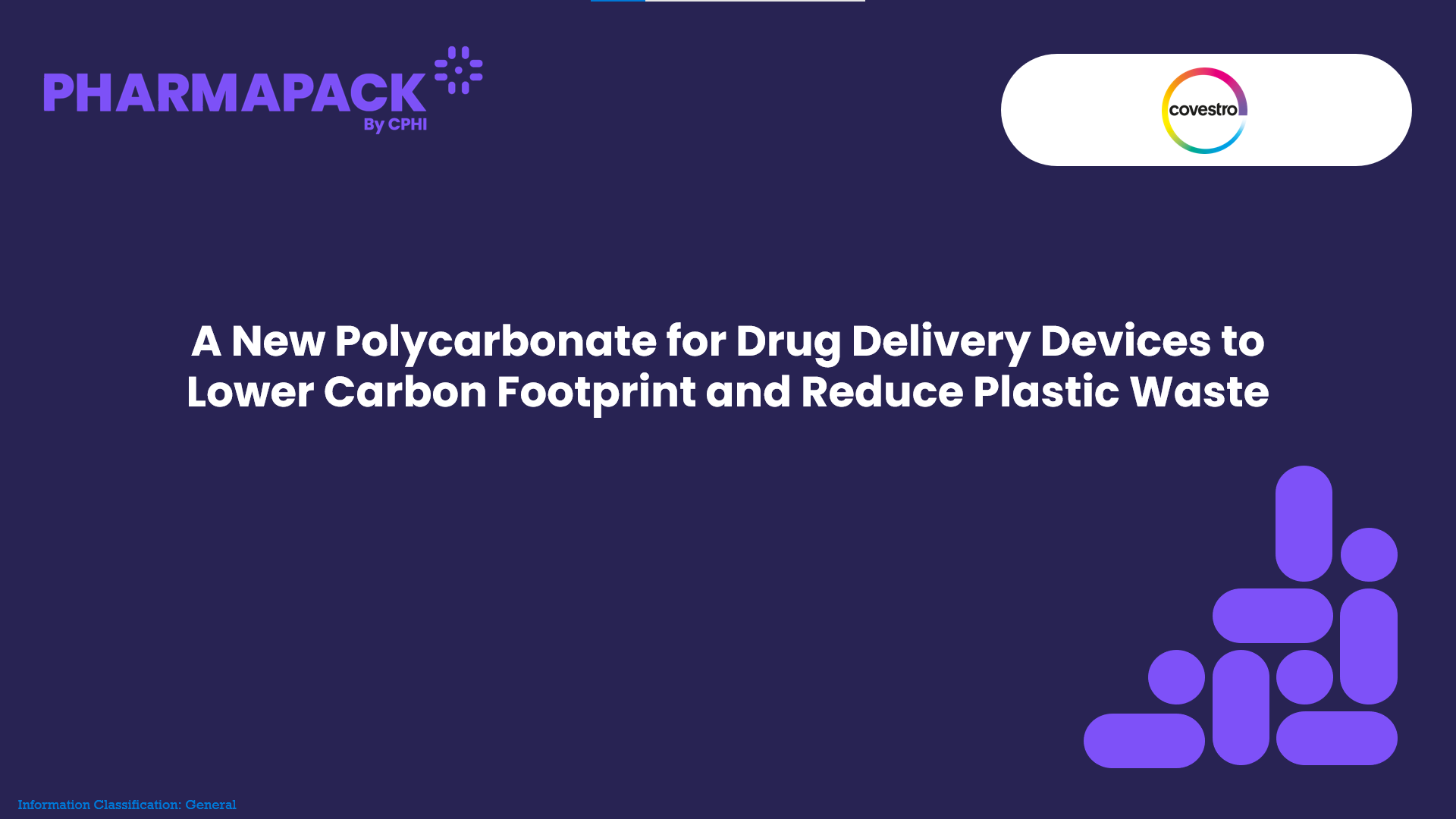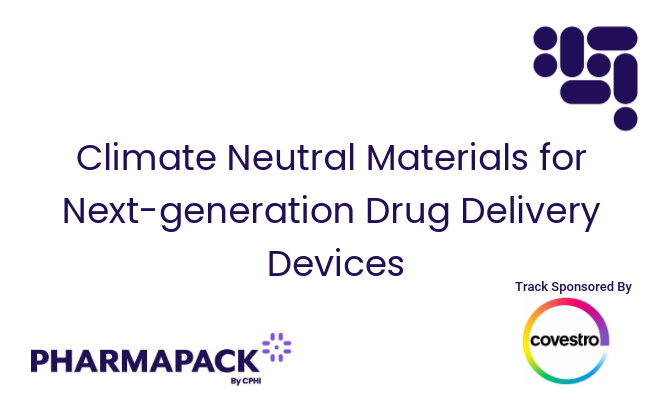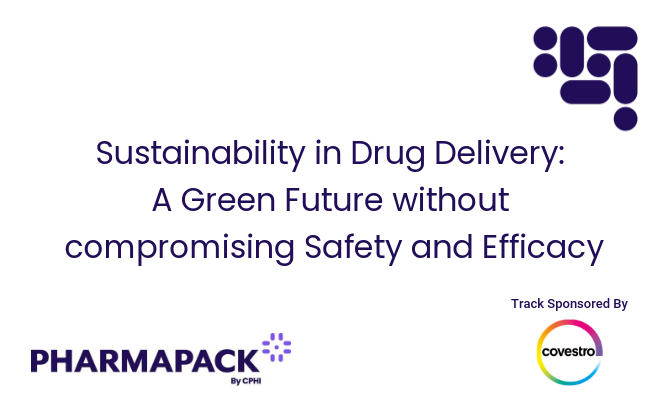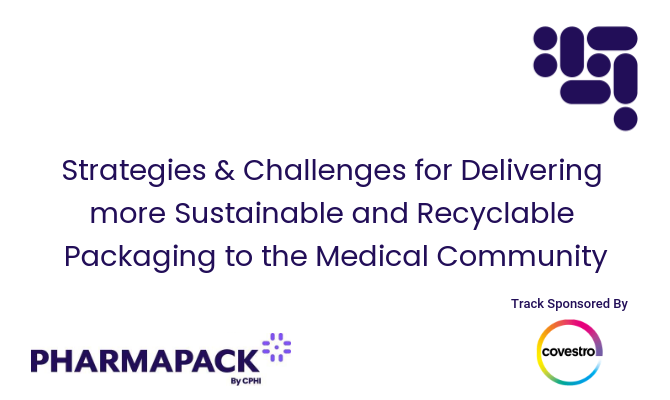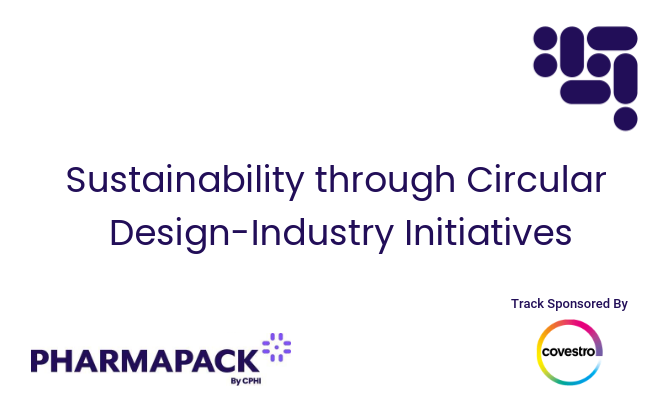Webinar
24 Jan 2023
Climate Neutral Polycarbonates for a Zero Carbon Footprint in Drug Delivery Devices Design
Content provided by our supplier
Covestro Deutschland AG
-
DE
-
2021On CPHI since
-
3Certificates
-
5000+Employees
Company types
Primary activities
Other Content from Covestro Deutschland AG (6)
-
Webinar Sustainability Case Study: Closed Loop Recycling of Small-Scale Single-Use Bioreactors
Development of bio-therapeutics often rely on small-scale single-use bioreactors made from plastics that include versatile connectors for easy connection and fast turnaround. As bio-therapeutic development continues to grow, industry front runners have defined challenging sustainability environmental targets with regards to emissions and are now looking at circularity targets. One of the common objections to plastic circularity in healthcare is the perceived “downcycling” effect of mechanical recycling, although there are material formulations that employ mechanically recycled materials, such as polycarbonate, where material from consumer articles are recovered, granulated and mixed-in with materials targeting demanding applications such as electronic devices. Therefore, the aim of this work was to collaboratively establish the technical feasibility of a closed loop recycling concept in bioprocess applications, using Makrolon® as a material of construction for bioreactor vessels. -
Webinar Collaborating to Simplify Device Development and Optimize Glass Solutions for Auto-Injectors
Advances in auto-injector design now provide the option to use both 1ml and 2.25mL syringes plus employ technology to adapt to varying fill volumes and viscosities all whilst maintaining the same device form. This provides a solution for the formulation changes that take place during drug development, clinical trials, and life cycle management. When looking at the performance of any parenteral injection device, the drug containment systems play a crucial role. Auto-injector performance and functionality is strictly linked to key dimensional tolerances of glass syringes. We will illustrate the importance of syringe design to ensure these requirements and how monitoring dimensional parameters at an early stage of the development is key to ensure the intended use and ultimately work to preserve patients’ safety. Benefits of tight collaboration between device designer and manufacturer will also be discussed -
Webinar Climate Neutral Materials for Next-Generation Drug Delivery Devices
In this webinar, originally part of Pharmapack Europe 2022, Bernd Garska, Technical Marketing Manager Healthcare EMEA, Covestro AG discusses how until now, drug delivery devices would require tedious sorting with a variety of materials used in various components. Now, with an all-polycarbonate device, minimal sorting would be required. At the end of life, the unit can be quickly and easily disassembled, then sorted into contaminated and non-contaminated components for easier disposal or recycling. This helps reduce medical waste while reducing the carbon footprint of the overall drug delivery device. Covestro’s new line of Climate Neutral healthcare-grade polycarbonates, Makrolon RE, bring new levels of performance and sustainability to the medical device market with an all-polycarbonate device. -
Webinar Sustainability in Drug Delivery: A Green Future without Compromising Safety and Efficacy
In this webinar, originally broadcast as a part of Pharmapack Europe 2022, Mayur Patel, Digital Health Expert, PA Consulting discusses in this session how every day 14,000 tons of medical waste are generated at healthcare facilities across the U.S. alone. Up to 20-25% of this waste can be attributed to plastic packaging and plastic products. Increasingly there are movements towards sustainable packaging solutions in the consumer sector. The businesses that minimise waste and maximise resource utilisation through a combination of reuse, redistribution, and recycling will lead the future economy. But can such actions translate to the medical industry without compromising the safety, efficacy, and sterility of life-saving therapeutics? This session will outline: Efficiently Designed Drug Delivery Devices Smart Technology for Labels and Instructions Modular and Sustainable Packaging Solutions Smart Supply Chain Technologies -
Webinar Strategies & Challenges for Delivering more Sustainable and Recyclable Packaging to the Medical Community
In this webinar, originally broadcast as a part of Pharmapack Europe 2022, Isabelle Jenny, Sustainability Manager, Amcor in collaboration with Healthcare Plastics Recycling Council (HPRC) discusses as consumers awareness and demand continues to grow, switching to sustainable packaging materials and practices can help companies stay relevant and profitable. The desire to reduce waste, technological advancements and the changes within the regulatory standards will drive the adoption of sustainable materials and practices in the pharmaceutical packaging industry. This session was broadcast as part of the Pharmapack show. -
Webinar Sustainability through Circular Initiatives
In this webinar, originally broadcast as part of the Pharmapack Europe show, Corinne Ondo, Head of Sourcing Production Materials Biotech & Healthcare Innovation, Merck discusses how Healthcare is currently improving packaging reuse in its supply chain by working in close partnership with its suppliers. By 2030 Merck has pledged to lower its indirect emissions along the entire value chain (Scope 3) by 52% per euro value-added. To achieve this goal, Healthcare is continuously engaging with its suppliers to find opportunities to reduce their emissions, through (for instance) a more circular economy. (One example of packaging reuse in a GMP environment will be showcased during the conference).
Position your company at the heart of the global Pharma industry with a CPHI Online membership
-
Your products and solutions visible to thousands of visitors within the largest Pharma marketplace
-
Generate high-quality, engaged leads for your business, all year round
-
Promote your business as the industry’s thought-leader by hosting your reports, brochures and videos within your profile
-
Your company’s profile boosted at all participating CPHI events
-
An easy-to-use platform with a detailed dashboard showing your leads and performance
-file128273.png)




-file145529.png)
